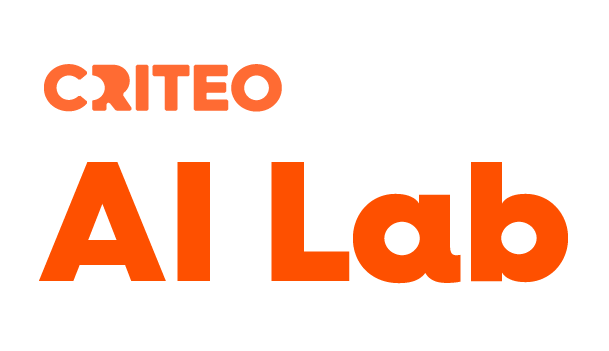Two papers co-authored by Criteo AI Lab researchers and their colleagues accepted at KDD 2020!
Paper #1: Joint Policy-Value Learning for Recommendation
- Authors: Olivier Jeunen(intern), David Rohde, Flavian Vasile. Martin Bompaire
- Abstract. Conventional approaches to recommendation often do not explicitly take into account information on previously shown recommendations and their recorded responses. One reason is that, since we do not know the outcome of actions the system did not take, learning directly from such logs is not a straightforward task. Several methods for off-policy or counterfactual learning have been proposed in recent years, but their efficacy for the recommendation task remains understudied. Due to the limitations of offline datasets and the lack of access of most academic researchers to online experiments, this is a non-trivial task. Simulation environments can provide a reproducible solution to this problem. In this work, we conduct the first broad empirical study of counterfactual learning methods for recommendation, in a simulated environment. We consider various different policy-based methods that make use of the Inverse Propensity Score (IPS) to perform Counterfactual Risk Minimisation (CRM), as well as value-based methods based on Maximum Likelihood Estimation (MLE). We highlight how existing off-policy learning methods fail due to stochastic and sparse rewards, and show how a logarithmic variant of the traditional IPS estimator can solve these issues, whilst convexifying the objective and thus facilitating its optimisation. Additionally, under certain assumptions the value- and policy-based methods have an identical parameterisation, allowing us to propose a new model that combines both the MLE and CRM objectives. Extensive experiments show that this “Dual Bandit” approach achieves state-of-the-art performance in a wide range of scenarios, for varying logging policies, action spaces and training sample sizes
Paper #2: BLOB : A Probabilistic Model for Recommendation that Combines Organic and Bandit Signals
- Authors: Otmane Sakhi, Stephen Bonner, David Rohde and Flavian Vasile
- Abstract. A common task for recommender systems is to build a profile of the interests of a user from items in their browsing history and later to recommend items to the user from the same catalog. The users’ behavior consists of two parts: the sequence of items that they viewed without intervention (the organic part) and the sequences of items recommended to them and their outcome (the bandit part). In this paper, we propose Bayesian Latent Organic Bandit model (BLOB), a probabilistic approach to combine the ‘organic’ and ‘bandit’ signals in order to improve the estimation of recommendation quality. The bandit signal is valuable as it gives direct feedback of recommendation performance, but the signal quality is very uneven, as it is highly concentrated on the recommendations deemed optimal by the past version of the recommender system. In contrast, the organic signal is typically strong and covers most items, but is not always relevant to the recommendation task. In order to leverage the organic signal to efficiently learn the bandit signal in a Bayesian model we identify three fundamental types of distances, namely action-history, action-action and history-history distances. We implement a scalable approximation of the full model using variational auto-encoders and the local re-paramerization trick. We show using extensive simulation studies that our method out-performs or matches the value of both state-of-the-art organic-based recommendation algorithms, and of bandit-based methods (both value and policy-based) both in organic and bandit-rich environments.
